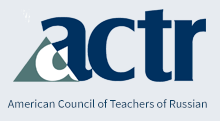Russian Language Journal
Keywords
Media, Russian language, L2 teaching
Abstract
This paper explores the connection between the rise of critical approaches to teaching media in Russian language classrooms and the political events of the last decade, during which Russia has increasingly positioned itself as an adversary to the Western world. The Russian state’s systematic weaponization of its media, severe restrictions on freedom of speech, and suppression of independent voices have created an environment where propaganda permeates all forms of social and public expression. This saturation has led information consumers to dismiss media content as manipulation, sometimes overlooking voices of resistance. As a result, it is crucial to equip students with interpretive skills and critical information literacy to effectively navigate the complex and ever-changing Russian media landscape. The transformation of the Russian media ecosystem has prompted a pedagogical shift in how media is taught to language students. In the past, Russian media courses primarily focused on media texts as tools for linguistic development. Over time, these texts also began to serve as windows into Russian society. Today, educators are rethinking media literacy once again, striving to teach students not only to understand the propositional meaning of media messages but also to identify biases and hidden agendas. This new critical approach introduces additional challenges for instructors, who must find ways to ease the cognitive load on students as they process multi-layered meanings while also providing the necessary cultural, political, social, and historical context for understanding media texts.
Recommended Citation
Shardakova, M. (2023). An Integrated Model for Teaching Information, Media, and Language Literacy. Russian Language Journal, 73(2). https://doi.org/10.70163/0036-0252.1346


